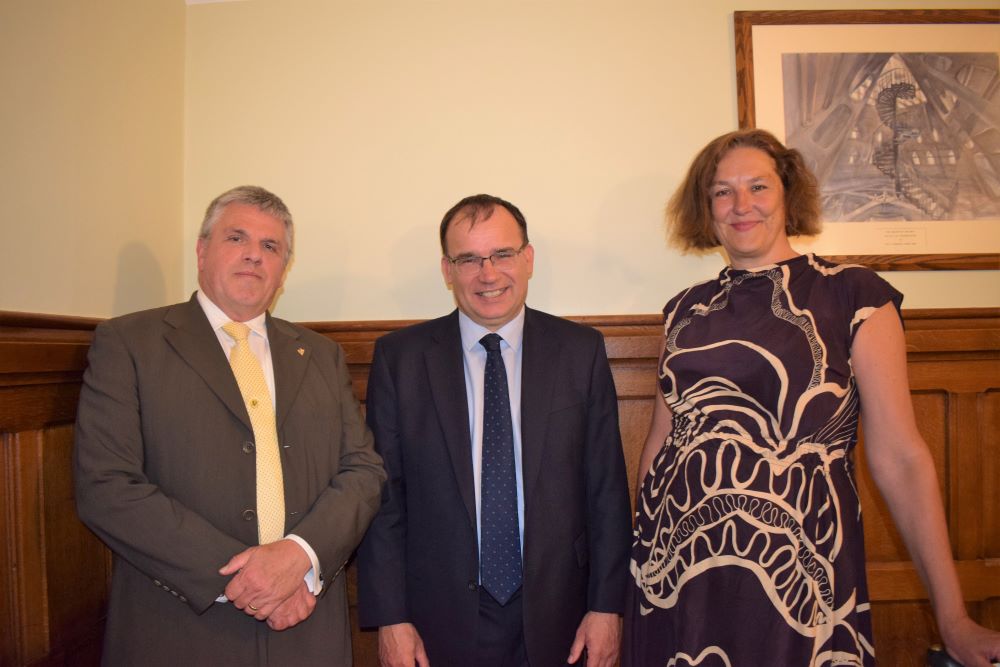
(Left to right: Raymond Burgin - IOE⁢ Gareth Thomas MP - shadow minister for international trade; Julia Clark - Tate & Lyle Sugars)
A dinner discussion at the House of Commons on Monday highlighted the need for global collaboration on standards and regulation when it comes to ensuring future international trade supports the move to net zero.
The event, hosted by the Industry and Parliament Trust (IPT), was attended my multiple MPs, Peers and business leaders.
Titled ‘Delivering Sustainable Trade and Exports’, the event was chaired by shadow international trade minister Gareth Thomas MP and featured talks from the Institute of Export & International Trade’s (IOE&IT) education delivery team leader, Raymond Burgin, and Tate & Lyle Sugars’ director of sugar ethics, Julia Clark.
The discussion was held under Chatham House rules.
Important discussion
Since speaking at the event, Burgin has told the IOE&IT Daily Update that the discussion was significant and took place in a “truly collaborative and collegiate manner”.
“The discussion came at an important moment, given the World Meteorological Organisation (WMO) only last month warned that the world could exceed the crucial 1.5C threshold of rising temperatures, compared to pre-industrial levels, as soon as 2027.
“It was great to talk with policymakers and fellow industry leaders about the challenges faced by businesses that trade internationally. There is a strong desire from businesses to get this right and the politicians at the dinner recognised the support government can provide, as well as its important regulatory role.
“It’s clear to me that education will also play a key role in this, as businesses need to learn how to properly audit their supply chains to ensure they are not only sustainable, but also regenerative.”
Burgin added that on a recent IOE&IT webinar about sustainable trade, 82% of the delegates said they would welcome additional educational support in the area.
Beneficial for businesses
Diners at the event agreed that there were significant benefits for businesses to ensure their supply chains are sustainable, in terms of recruitment, reputation risk and access to better customers.
However, it was also noted that it is becoming increasingly difficult for businesses to communicate messages around sustainability amid fears of accusations of ‘greenwashing’.
Global standards
Attendees agreed about the need for international collaboration around standards and regulatory frameworks and felt that the UK could play a leading role in fostering this.
The point was also made that developing countries need to be fully bought into the fold in creating these standards and should not be excluded from UK supply chains. As such, infrastructural support will be needed throughout the supply chain, it was said.



